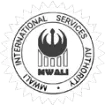Think of your broker as your trading partner. You want a partner you can trust, who offers competitive rates, excellent service, and a platform that suits your trading style.
Factors to Consider When Choosing a Broker
With so many Forex brokers to choose from, it can be overwhelming to decide which one is right for you. Here are the key factors to consider in detail:
Regulation:
Ensure your broker is regulated by a reputable financial authority. This is crucial for the safety of your funds and ensures the broker adheres to strict financial standards. Some well-known regulatory bodies include:
- Financial Conduct Authority (FCA) (UK)
- National Futures Association (NFA) and Commodity Futures Trading Commission (CFTC) (USA)
- Australian Securities and Investments Commission (ASIC) (Australia)
- Cyprus Securities and Exchange Commission (CySEC) (Cyprus)
Fees:
Forex brokers make money through various fees, so it's important to understand their fee structure. Compare the following:
- Spreads: The difference between the bid and ask price. Look for brokers with tight spreads, especially if you're a scalper or day trader.
- Commissions: Some brokers charge a commission per trade, while others offer commission-free trading with wider spreads.
- Swap Fees: Also known as rollover fees, these are charged for holding positions overnight.
- Inactivity Fees: Some brokers charge a fee if you don't trade for a certain period.
Trading Platform:
The trading platform is your command center for executing trades, analyzing charts, and managing your account. Consider the following:
- User-Friendliness: Is the platform intuitive and easy to navigate?
- Charting Tools: Does it offer a wide range of charting tools and indicators?
- Order Types: Does it support the order types you need, such as market orders, limit orders, and stop-loss orders?
- Mobile Trading: Can you access the platform on your mobile device?
Customer Service:
Good customer service is essential, especially if you're a beginner. Look for a broker that offers:
- Responsive Support: Can you easily reach them through phone, email, or live chat?
- Knowledgeable Staff: Are their support agents knowledgeable about Forex trading and able to answer your questions?
- Multiple Languages: Does the broker offer support in your preferred language?
Educational Resources:
A good broker will invest in your education as a trader. Look for resources like:
- Webinars and Seminars: Live or recorded sessions covering various Forex topics.
- Tutorials and Articles: Written guides and articles on trading strategies, technical analysis, and fundamental analysis.
- Demo Account: A risk-free environment to practice trading and test strategies.
Account Types:
Different brokers offer various account types to cater to different traders. Consider the following:
- Minimum Deposit: How much do you need to deposit to open an account?
- Leverage: What leverage options are available? (Remember, higher leverage means higher risk.)
- Spread Type: Do you prefer fixed or variable spreads?
Deposit and Withdrawal Options:
Make sure the broker offers convenient and secure deposit and withdrawal methods that suit your needs. Look for options like:
- Bank transfers
- Credit/debit cards
- E-wallets (Skrill, Neteller, PayPal)
- Cryptocurrencies (if applicable)
Types of Forex Brokers: Understanding the Different Models
Now that you know the key factors to consider when choosing a Forex broker, let's delve into the different types of brokers based on their execution models. Understanding these models will help you make an informed decision about which type of broker best suits your trading style and preferences.
1. ECN Brokers (Electronic Communication Network)
ECN brokers are like the high-tech matchmakers of the Forex world. They operate an electronic network that connects you directly to other market participants, including banks, hedge funds, and other traders. This means you get access to the best available bid and ask prices from multiple liquidity providers.
Key features of ECN brokers:
- Direct Market Access (DMA): You trade directly with other market participants, not against the broker.
- Variable Spreads: Spreads fluctuate based on supply and demand in the market, often resulting in tighter spreads during liquid market conditions.
- Commission-Based Pricing: ECN brokers typically charge a commission per trade, which can be a fixed amount or a percentage of the trade volume.
- Transparency: ECN brokers provide a transparent view of the market depth, showing the available liquidity at different price levels.
Suitable for: Active traders, scalpers, and those who prioritize price transparency and fast execution.
2. STP Brokers (Straight Through Processing)
STP brokers act as a bridge between you and liquidity providers. They don't take the other side of your trade but instead pass your orders directly to banks and other financial institutions. This eliminates the potential conflict of interest that can arise with dealing desk brokers.
Key features of STP brokers:
- No Dealing Desk: Your trades are not interfered with by the broker.
- Variable Spreads: Similar to ECN brokers, spreads vary based on market conditions.
- Commission-Based or Markup Model: Some STP brokers charge a commission per trade, while others add a small markup to the spread.
Suitable for: Traders who prefer no dealing desk intervention and are comfortable with variable spreads.
3. Dealing Desk (DD) Brokers
Dealing desk brokers, also known as market makers, act as a counterparty to your trades. This means they take the other side of your position, essentially betting against you. They often offer fixed spreads, which can be appealing to some traders, but this model can create a conflict of interest.
Key features of DD brokers:
- Fixed Spreads: Spreads remain constant regardless of market conditions.
- No Commission: DD brokers typically don't charge a commission per trade, as they profit from the spread.
- Potential for Re-Quotes: In volatile market conditions, DD brokers may re-quote prices, meaning the price you see may not be the price you get.
Suitable for: Beginners who prefer fixed spreads and don't mind the potential conflict of interest.
Choosing the Right Broker for You
The best type of broker for you depends on your individual trading style, preferences, and experience level. Consider the following:
- Trading Style: If you're a scalper or high-frequency trader, an ECN broker might be a good fit due to their fast execution and tight spreads. If you prefer a more relaxed approach, an STP broker might be suitable.
- Experience Level: Beginners might find DD brokers easier to understand due to their fixed spreads. However, as you gain experience, you might prefer the transparency and potential for tighter spreads offered by ECN or STP brokers.
- Risk Tolerance: If you're risk-averse, you might prefer a DD broker with fixed spreads. However, if you're comfortable with variable spreads and the potential for higher profits, an ECN or STP broker might be a better choice.
Remember, thorough research and comparison are crucial. Test different platforms with demo accounts, read online reviews, and compare fees and features before making your final decision.







